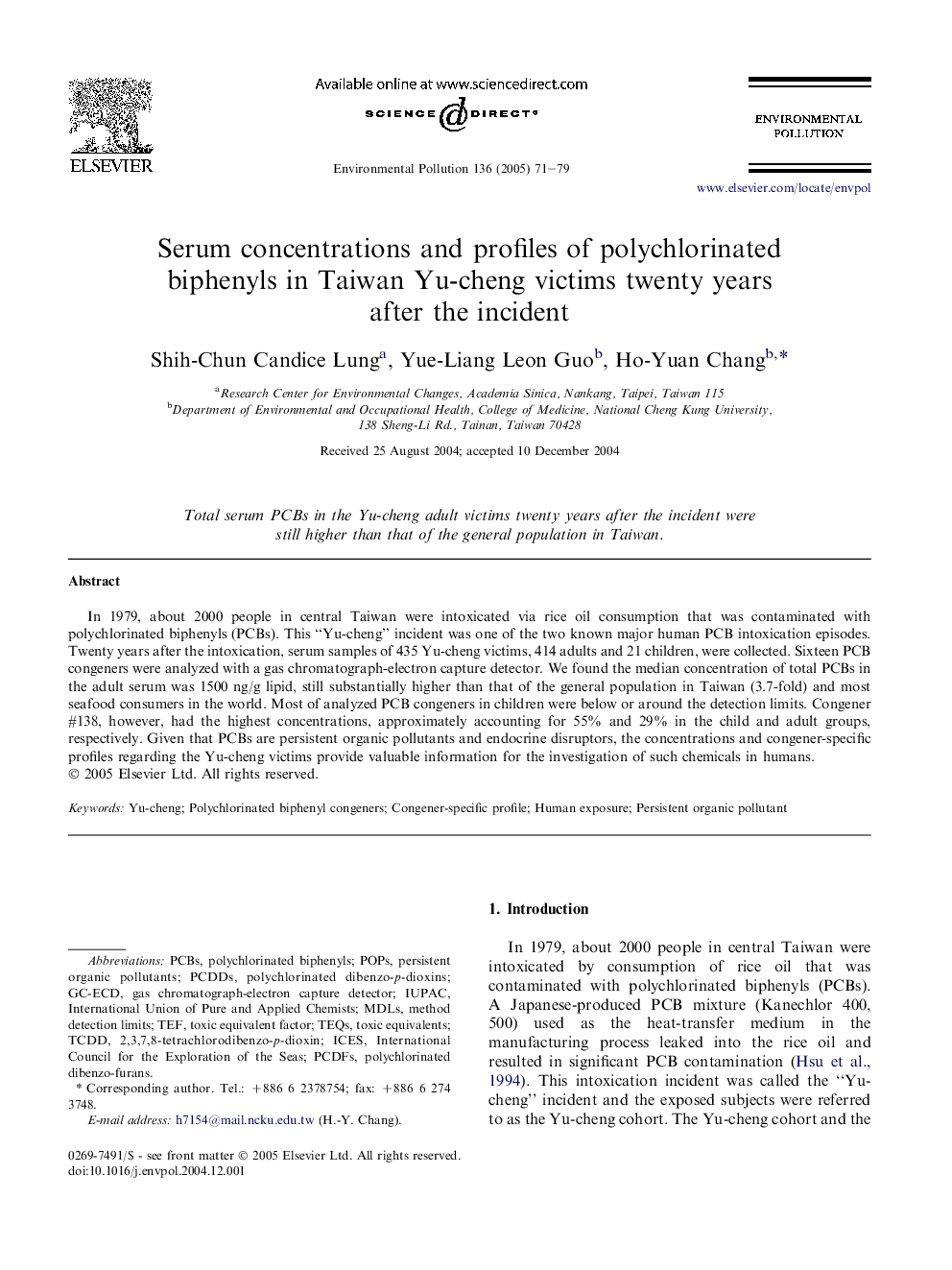| Article ID | Journal | Published Year | Pages | File Type |
|---|---|---|---|---|
| 9456321 | Environmental Pollution | 2005 | 9 Pages |
Abstract
In 1979, about 2000 people in central Taiwan were intoxicated via rice oil consumption that was contaminated with polychlorinated biphenyls (PCBs). This “Yu-cheng” incident was one of the two known major human PCB intoxication episodes. Twenty years after the intoxication, serum samples of 435 Yu-cheng victims, 414 adults and 21 children, were collected. Sixteen PCB congeners were analyzed with a gas chromatograph-electron capture detector. We found the median concentration of total PCBs in the adult serum was 1500 ng/g lipid, still substantially higher than that of the general population in Taiwan (3.7-fold) and most seafood consumers in the world. Most of analyzed PCB congeners in children were below or around the detection limits. Congener #138, however, had the highest concentrations, approximately accounting for 55% and 29% in the child and adult groups, respectively. Given that PCBs are persistent organic pollutants and endocrine disruptors, the concentrations and congener-specific profiles regarding the Yu-cheng victims provide valuable information for the investigation of such chemicals in humans.
Keywords
Related Topics
Life Sciences
Environmental Science
Environmental Chemistry
Authors
Shih-Chun Candice Lung, Yue-Liang Leon Guo, Ho-Yuan Chang,
